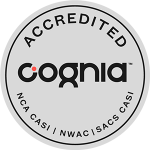Sifting through the truth versus the lies and being able to discern the facts from the opinions about homeschooling can be challenging. Add to it the gravity of any decision regarding your children’s upbringing and education, and the responsibility of choosing whether or not to homeschool can get heavy. Myths about homeschooling can be grouped into three main categories:
- Myths about Homeschooled Students,
- Myths about Homeschool Parents and Families, and
- Myths about the Practicalities of Homeschooling.
Myths About Homeschooled Students
At the center of any homeschool debate are the students and their futures. These revolve around these main myths:
- Myth #1: Homeschooled kids don’t get to socialize.
- Myth #2: Homeschooled students don’t get to participate in extracurricular activities.
- Myth #3: Homeschooled students won’t be prepared for life.
- Myth #4: Homeschooled students can’t get accepted to college.
In the end, how a family approaches homeschooling determines the validity of these statements. For families who dedicate themselves to homeschooling their children, making sure that their children experience life beyond the homeschool classroom is of utmost importance. Northgate Academy is here with some sound advice about how families can prove these statements to be myths.
Myth #1: Homeschooled Kids Don’t Get To Socialize.
Although homeschooled students do not run into the same number of peers in the hallways of busy public schools, they can still socialize and learn to be members of a community. Across the nation, homeschool community groups have grown in number and size. These organizations have dedicated themselves to providing in-person and online social opportunities as well as learning in the form of group field trips and collaborative learning experiences for homeschooled youth. These purposeful homeschool family networks give young people the chance to connect with their peers, make friends, and experience what it’s like to spend time with others who are both similar to and different from them.
Beyond formal homeschool organizations, local community organizations are a great resource for homeschool families. Reaching out to local churches provides another opportunity for socialization. Often, local churches provide youth groups where young people can spend time learning about their faith, growing as responsible citizens, and just learning what it’s like to be a young person in today’s world.
Myth #2: Homeschooled Kids Won’t Get To Participate In Extracurricular Activities
Extracurriculars are the highlight of some teenagers’ high school experiences, so this is a valid concern to consider. However, in some states, districts are required to open extracurricular activities to local homeschooled students. You can find out if this is true in your area with a phone call to your district administration office or school board members. But public schools are not the only resource for extracurricular activities. Students can find many activities offered through local community centers, and they can participate regional athletics through the parks department.
Some teens prefer activities like community theater available in communities around the country. Art centers provide opportunities for students to grow and share their artistic talents and hard work, and overall, if you are willing to search for it, you most likely can find whatever opportunity your student wants to be involved in. Because of the flexibility of a homeschooled student’s schedule, they often find themselves even more dedicated to these opportunities with even more time to spend on extracurricular activities than they would have been as a student in public school.
Myth #3: Homeschooled Students Won’t Be Prepared For Life.
 If you speak to a family that has been homeschooling for any length of time, you find right away that this is simply not true. Because of the flexible schedule that homeschooling offers students, they often gain far more experiences than their peers. From being able to take on more hours at a part-time job to having the quality time available to learn practical life skills from their family members, homeschoolers can be prepared for life after high school and beyond. Homeschooled students are often responsible for assessing their own time and managing their own schedules under the guidance of their parents. This skill alone sets them apart from traditionally educated students.
If you speak to a family that has been homeschooling for any length of time, you find right away that this is simply not true. Because of the flexible schedule that homeschooling offers students, they often gain far more experiences than their peers. From being able to take on more hours at a part-time job to having the quality time available to learn practical life skills from their family members, homeschoolers can be prepared for life after high school and beyond. Homeschooled students are often responsible for assessing their own time and managing their own schedules under the guidance of their parents. This skill alone sets them apart from traditionally educated students.
As independent, self-motivated thinkers and learners, they are often far ahead of their peers in terms of understanding how to budget their time, how to cook and clean for themselves, and how to problem-solve without another person hovering over them. When these teens are a part of a homeschool network or if they are responsible for helping younger siblings, they learn how to teach each other, re-enforcing the lessons they’ve already learned. As independent thinkers, homeschooled students often leave home with an advantage for coping with “real life.”
Myth #4: Homeschooled Students Can’t Get Accepted To College.
This statement is a very old-fashioned view of homeschooling. First of all, homeschooling doesn’t mean that a student is learning from fifty-year-old textbooks and outdated content. Accredited online curriculum is available for homeschooled students, and Northgate Academy is one such accredited online school. Northgate Academy is regionally accredited by Cognia, (formerly AdvancED) the parent organization of the North Central Association CASI, the Southern Association of Colleges and School CASI, and the Northwest Accrediting Commission. Using an accredited provider such as Northgate Academy guarantees that homeschooled students will leave with a valid high school diploma while still having the flexibility and freedom that their families desire for their children. Homeschool families will often use Northgate for part-time or full-time enrollment in classes.
Beyond accreditation, colleges and universities often see value in the qualities that homeschooled students bring to their campuses. As independent thinkers, they are often also internally motivated, increasing the chance that they will finish their college degree in the same place they started it. Being able to work independently is an essential college level skill. Driven, motivated homeschooled students are an asset to college and university campuses around the globe.
Myths About Homeschool Parents & Families
Parents are also included in the most common homeschool myths including the next four most frequently addressed myths about homeschool families:
- Myth #5: Parents don’t have time to homeschool their children.
- Myth #6: Parents who are not licensed teachers cannot provide instruction for their children.
- Myth #7: Only the most religious families homeschool their children.
- Myth #8: Homeschool families are controlling.
Myth #5: Parents Don’t Have Time To Homeschool
Perhaps if the internet did not exist, this might be true. But in a time when curriculum can be purchased online, this is simply not true any longer. Programs like that of Northgate Academy have all of your student’s work laid out for them, with every assignment from start to finish visible to both you and your student on Day One.
Parents are still responsible for making sure their students are logging in and keeping up with their work, but the days of homeschool parents spending hours at the library researching and planning lessons are over.
Myth #6: Parents Are Not Qualified
Homeschooling is legal and permitted in all 50 of the United States. It is a right of parents to choose to homeschool their children. However, if you want to be sure your homeschooled students have access to experts, programs like Northgate Academy provide teachers who are available to guide and instruct your student when they reach out for help.
Myth #7: Only The Most Religious Families Homeschool
Although faith is an absolutely valid reason for homeschooling your children, many different families take advantage of the value found in homeschooling. From transportation issues to conflict with school districts’ political agendas, Americans have ample reasons to homeschool their children. Students today are faced with violence and bullying within the walls of the schools that are supposed to nurture them. Many students face anxiety that prevents them from learning when faced with today’s current educational styles.
Some families choose homeschooling because they want to travel for work or pleasure, want the chance to visit with family around the country, and want the freedom to expose their children to as many different experiences as possible while they are still developing their world view. Each of these examples is a valuable and reasonable reason to homeschool your students.
Myth #8: Homeschool Families Are All Controlling
Caring about what beliefs and values your child is being exposed to is not the same as being controlling. Homeschooling provides young people the time and freedom to study and expand on knowledge in specialized areas. Because lessons can be completed in far less time than in a brick-and-mortar school, students can explore their specific areas of interest. They have the independence to determine their schedules and learn responsibility in their home. It’s healthy for young people to have guidance of their families, to have responsibilities at home, and to live within set boundaries and experiences.
Myths About The Practicality Of Homeschooling
Here are the final two myths related to the practicality of homeschooling:
- Myth #9: Homeschooling is expensive.
- Myth #10: There are not many homeschool resources available near me.
Myth #9: Homeschooling Is Expensive
The first thing to consider is that many states now provide tax credits for families who choose to homeschool. These tax credits vary by state, but it would be worth the search to find out if your state offers any.
Northgate Academy’s tuition-based programs offer families the ability to pay tuition in ten monthly payments. Our goal is to make our programs as accessible as possible for families. By dividing up the tuition payments, many families find that they can afford to homeschool their children with the added benefit of all of the planning and scoring being done for them, too!
Myth #10: There Are Not Many Homeschool Resources Available Near Me.
With the advent of the internet, not only are there now online curriculum providers like Northgate Academy and Excel High School, but finding resources to supplement your students’ experiences and exposure to life are at the tips of your fingers, too. Finding other homeschool families is as simple as searching social media for homeschool networks. Exposing your student to cultural lessons can start with YouTube. The world is a keystroke away.
Regardless of why you want to homeschool your child, understanding what is real and what is a myth is a great place to start in your journey. At Northgate Academy, we provide plenty of resources for our homeschool students to achieve academic success. Don’t let myths prevent you from reaching your goal of being a homeschool success story.
Are you exploring homeschool as an option for your family? Let us help with our nationally recognized, regionally accredited curriculum. Enroll today or get in touch with one of our school counselors for more information!




